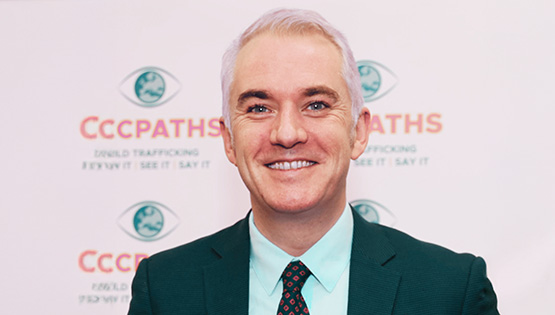CPD
5 weeks
Online - Part-time
16 CPD
TBC
About
This RCSI Graduate School of Healthcare Management course delves into the key themes and practical challenges surrounding human trafficking, tailored specifically for health and social care professionals. It begins with a foundational understanding of what human trafficking is, exploring its causes, global and national implications, and how it affects victims' health and well-being.
Participants will learn to recognise the often-subtle signs of trafficking and explore the responsibilities of their roles in identifying potential victims and supporting them.
The course also addresses the unique context of human trafficking within the Republic of Ireland, with a focus on how the National Referral Mechanism (NRM) operates and what it means for health and social care workers. This course will therefore be of interest to service providers located in Ireland but it is also relevant to service providers working in other jurisdictions where a National Referral Mechanism is already in operation or soon to be introduced.
Emphasis is placed on developing communication strategies for engaging with victims and managing the emotional and psychological aspects of working in this area.
Participants will explore the legal and ethical obligations professionals must uphold, including the interdisciplinary collaboration required to effectively support victims.
Participants will then focus on developing and implementing human trafficking response protocols, overcoming common challenges, and evaluating the success of these protocols in real-world scenarios.
This mix of theoretical and practical content helps participants reflect on their own roles, equipping them to contribute meaningfully to their organisation’s response to human trafficking cases.
Watch Dr Gloria Kirwan introduce the course and the subject of human trafficking below:
Improved confidence in identifying and responding to trafficking
Understanding of legal and ethical responsibilities
Application to practice
Suitable for
This programme is ideal for healthcare professionals including: doctors, managers, nurses, allied health professionals, interdisciplinary health and social care workers, clinical specialists, and administrators. It is also relevant for those in medical supplies, the pharmaceutical sector, and healthcare regulation.
What you will learn
An introduction to what human trafficking is, why it happens, and how it affects individuals globally and in Ireland.
A look at international and national responses to trafficking, including how human rights principles shape professional practice.
Focuses on recognising the signs of trafficking, understanding trauma, and exploring the role of healthcare and social care professionals.
Explores how organisations can respond to change, with a focus on the evolving National Referral Mechanism in Ireland.
Faculty highlight
Register your interest
For organisations interested in enrolling participants in this programme, please contact partnership@rcsi.ie.
Course information
By the end of the course, you will be able to:
- Understand and interpret the key elements that define cases of human trafficking.
- Understand the causes of human trafficking and the global implications of this phenomenon.
- Critically appraise the role of healthcare and other professionals in addressing the identification of human trafficking victims and in the post-identification care and support of human trafficking victims.
- Articulate the legal and professional obligations of staff in your agency in relation to the identification and post-identification care and support of human trafficking victims.
- Reflect on their own role within their organisation and how it can contribute to the development or improvement of responses to potential or confirmed cases of human trafficking.
Assessment is continuous throughout the course, including short quizzes to reinforce learning. In Week 5, participants complete a personal action plan (PAP), which provides an opportunity to reflect on key learnings and outline how these can be applied in their own professional context.
This course is approved for 16 RCSI CPD points.
Admissions
English language requirements for Postgraduate programmes are published on the RCSI website.
The course fee is €1,000 per participant. Organisations interested in enrolling participants are invited to contact partnership@rcsi.ie. For individual enquiries, please register your interest above.





